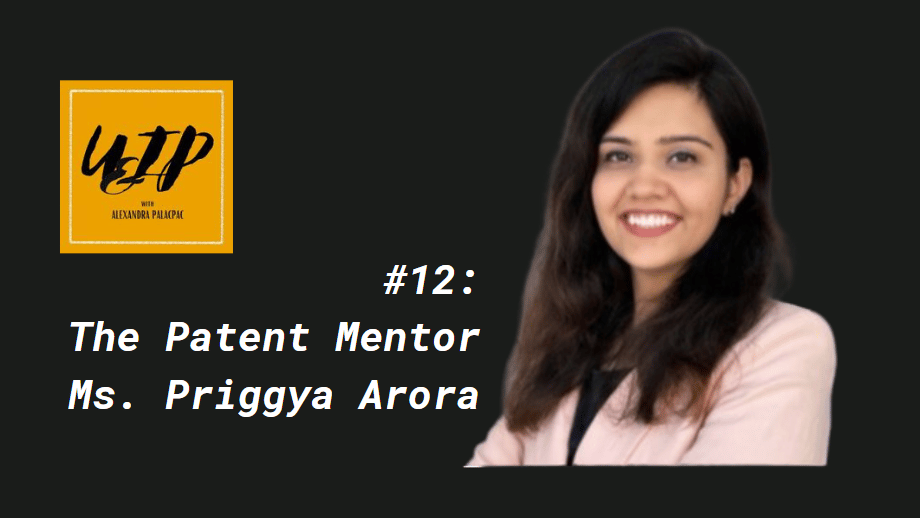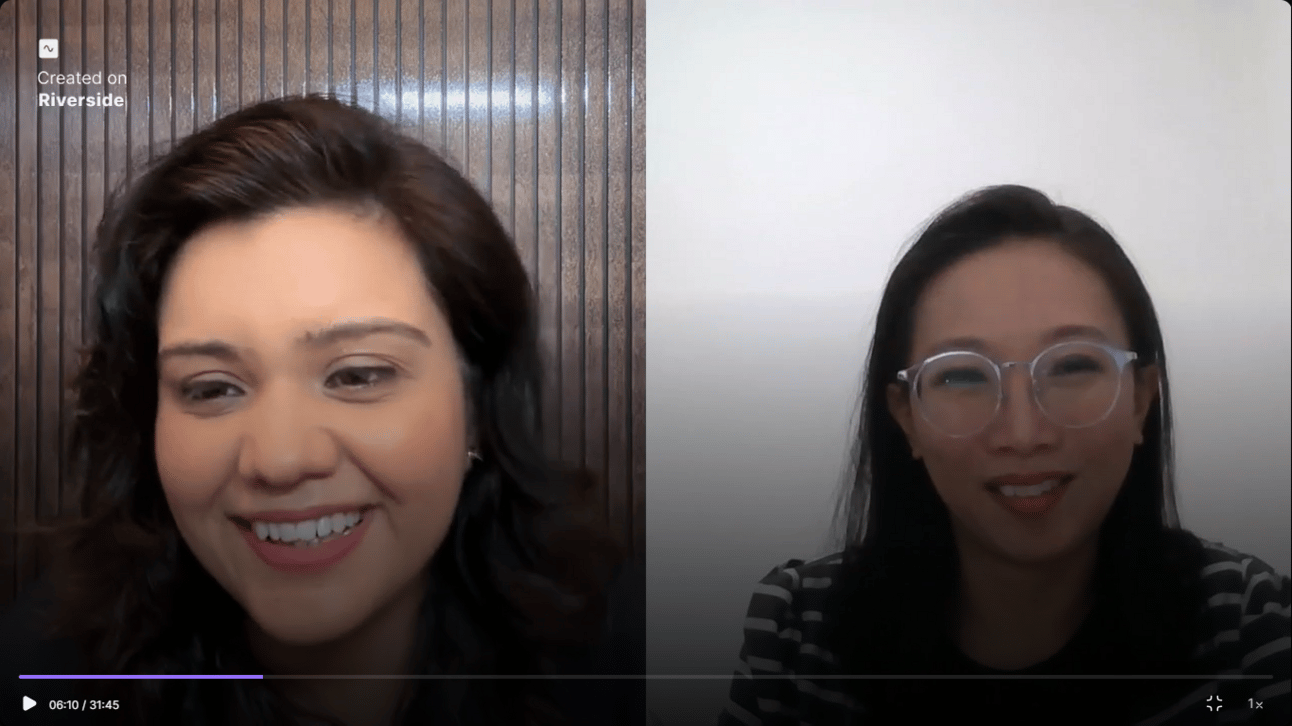- UandIP
- Posts
- UandIP Features: The PATENT MENTOR Priggya Arora
UandIP Features: The PATENT MENTOR Priggya Arora
We Spoke with The Patent Mentor and “Protect Your Innovation” Author Priggya Arora. Let's learn about her journey, IP expertise, and insights.

From Engineering to IP Advocacy: An Accidental Yet Passionate Journey
We are thrilled to share an in-depth look at our recent UandIP podcast episode featuring Ms. Priggya Arora, also known as "The Patent Mentor" and the insightful author of 'Protect Your Innovation'.
As a prominent figure in the intellectual property (IP) field, Priggya shared her unique journey, emphasized the critical importance of safeguarding innovations, and delved into the intricate aspects of patent applications.
Priggya Arora introduces herself as an alumna of IIT Kharagpur, uniquely blending her background as a lawyer and an engineer. She is dedicated to helping innovators and business owners protect their intellectual property, specifically their creations and the value derived from them. Over the past eight years, Priggya has assisted a remarkable 500 to 800 innovators and business owners in their IP endeavors, a fact she is immensely proud of.
Her path into the IP world was, by her own admission, "truly accidental".
During her time, IP was still a very new field, and many IP attorneys entered it by chance. After completing her electrical engineering degree, Priggya found herself at a crossroads, not wishing to pursue a government job or advanced studies in electrical engineering amidst the booming computer science field.
The turning point came when her father, involved in court cases that intertwined law and technology, took her to his lawyer. Priggya observed the lawyer struggling to grasp the engineering specifics of the case, prompting her to ask her father why engineers didn't become lawyers to bridge such gaps. Her father's pivotal suggestion, "why don't you go and do law?", spurred her to research and apply to one of India's top colleges, eventually leading her to an IP school. This journey ignited a deep passion within her to assist others in navigating the complex intersection of law and engineering.
Essential Insights for Protecting Your Innovation
The conversation with Priggya delved into several critical aspects of patent protection, offering crucial guidance for innovators.
The Global Nature of Novelty in Patentability
Priggya strongly asserted that if a patent lawyer or agent advises searching for patentability information only at a national level, they are "lying". To obtain a granted patent, the invention must satisfy the novelty criterion, meaning it must be "new in the light of global knowledge which is existing". She explained that patent offices worldwide, including the Indian Patent Office, USPTO, and EPO, will rigorously check for prior art throughout the globe. Limiting a search to a single country risks rendering the entire effort useless, as a similar product existing elsewhere could prevent a patent grant. Furthermore, prior art is not confined to other patent documents. It encompasses "any existing knowledge," which, according to her, can include, YouTube videos, Instagram reels, Short videos, Magazines and articles, Blogs, AI-developed content. Therefore, a comprehensive global search is indispensable.
The Strategic Value of Provisional Patent Applications
Priggya enthusiastically described the provisional patent application as a "precious gem" for innovators. This mechanism allows an innovator to file an incomplete application as a "placeholder," thereby securing an early filing date. The innovator then has a full year from the provisional filing date to submit the complete, main patent application.
This one-year window is critically important for several reasons, especially for individual and small innovators:
Cost-Effectiveness — Provisional applications are significantly less expensive than complete applications.
Market Testing — It provides crucial time to conduct market testing and assess the product's viability.
Funding and Investment — Innovators can use this period to seek investors and secure necessary funding before committing to the higher costs of a complete application.
Risk Mitigation — If the product proves not viable after market testing, the innovator can simply drop the application without having incurred significant financial loss. Priggya noted that provisional applications are utilized "all over the place" across nearly every industry, particularly by those beginning their innovation journey, given today's rapidly changing technological landscape where technologies have shorter lifecycles.
Software patents remain a "hot topic" in the IP field, a status they have held for over a decade. Many jurisdictions, including India, state that "mere software" or "software per se" is not patentable. This means that simple computer functions or software whose core essence is merely a program may not be patentable. However, if the software's "overall use" integrates with hardware or performs "something extra" beyond general computer functioning, it may be patentable. Priggya offered compelling examples.
Say, a simple calculator, even with minor modifications, would generally not receive a software patent. In contrast, a VR (Virtual Reality) device that involves a headset, a laptop, multiple devices interacting, significant processing, machine learning, and AI, which together deliver a tangible output, can be patentable.
Priggya mentioned a recent patent grant in the AR/VR technology field. The key lies in identifying this "something extra" that distinguishes a patentable software invention. This is where the "art of the patent attorney" becomes crucial.
#ThePatentMentor strongly advises innovators with software inventions to seek the help of a patent attorney because they can "help you dig more and more and come out with ideas which can lead to something extra which is not mere computer functioning" by asking strategic questions.
She noted that patent offices are increasingly recognizing the evolving nature of software, which now drives global and device interactions beyond just running a computer, acknowledging that interaction between devices without human intervention is not "mere software".

Image Captured through Riverside.FM. Video Podcast Published on UandIP Spotify Channel.
'Protect Your Innovation': A Guiding Light for Innovators
Priggya's book, 'Protect Your Innovation,' is available on Amazon and is aptly described as a "starter kit for innovators". The inspiration for the book arose from the common questions and confusions Priggya encountered daily from the hundreds of innovators she has worked with. She recognized that while the content might seem basic to IP lawyers, it is fundamental to innovators who are giving "life to their innovation".
The book addresses a range of everyday questions that innovators frequently ask, including:
Why should one get a patent?
Understanding the patent process and the rights involved.
The geographical scope of patent rights (e.g., whether a U.S. patent grants rights in India, or a European patent grants rights only in specific countries like Germany).
The correct timing for publishing or disclosing an invention versus filing a patent.
How to license an invention and monetize it.
Her primary goal with the book is to provide a clear process for protecting innovations and to help innovators establish a defined goal before embarking on the patent process. Among the crucial "do's and don'ts" highlighted in the book and the podcast, Priggya emphasized:
"Don't publish your application before filing a patent", as this can negate novelty and prevent patent acquisition.
"Do take help of provisional applications" to conduct market research and verify product viability before investing heavily in the patent process.
Challenges and Courage in the IP Field
As a woman IP professional, Priggya candidly acknowledged the challenges, particularly regarding the demands of networking and travel inherent in the IP field. She highlighted the difficulty of balancing these professional requirements, such as meeting lawyers from other jurisdictions and building a global community, with the traditional role of women as "primary caretakers of their homes". While she enjoys networking and is fortunate to have a strong support system at home, she admitted that managing both aspects simultaneously can be challenging.
When asked what advice she would give her younger self, Priggya first expressed gratitude for living in the current digital era. She noted that the internet has democratized voices, allowing previously unheard individuals to be heard through social media, podcasts, writing, and speaking, thereby fostering greater equality.
Her core advice to her younger self would be: "my happiness depends on me, it does not depend on the world and my happiness depends on me and only me and I am responsible for it".
She also encouraged her younger self to be "a little more courageous" and to "experiment, make a lot of mistakes and learn from it," reflecting her own growth in courage over the past eight to ten years.
Priggya Arora's profound insights underscore the intricate yet immensely rewarding world of intellectual property. Her unwavering dedication to demystifying patent protection and empowering innovators truly cements her role as a genuine "patent mentor".
#2025July12
*Video and Audio Content created using Riverside.fm.
Created and Written by Alexandra Palacpac, U&IP 2025.
NOTE: By clicking this link, I may have a small compensation at absolutely NO COST TO YOU.
Hope you enjoy writing with BEEHIIV as I do.
Reply